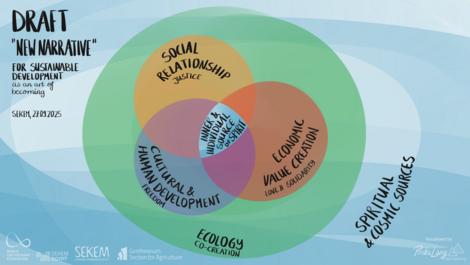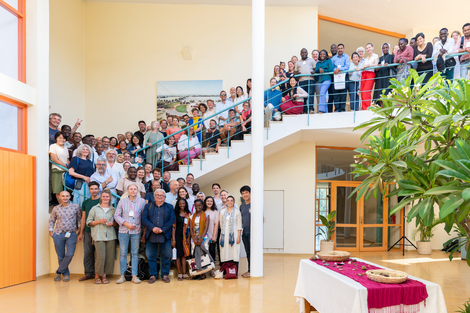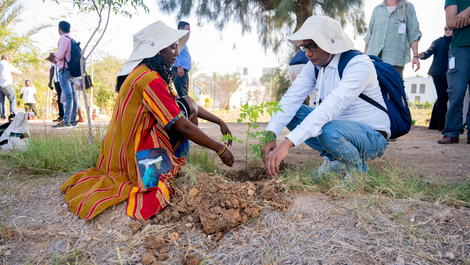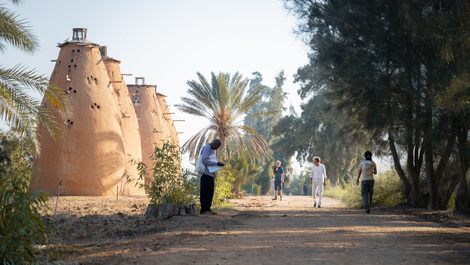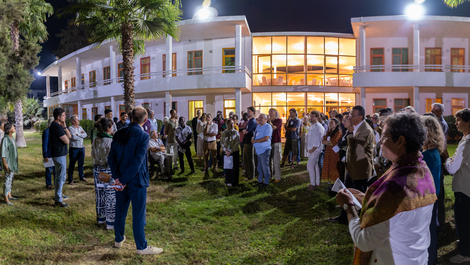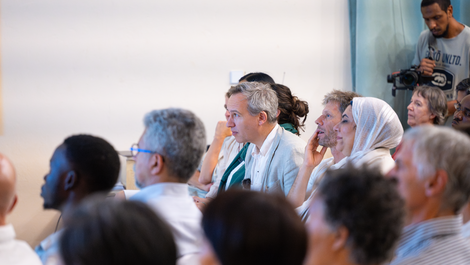Sustainability developments in crisis
After decades of political programmes and economic strategies, efforts towards sustainable development are in crisis. Between greenwashing and global climate challenges, people around the world are searching for a deeper orientation. At the World Goetheanum Forum 2025 in Sekem, a new understanding emerged: sustainable development combines energetic action with inner training and spirituality.
The term ‘sustainable development’ is overused, underdefined and often misunderstood today. In fact, ‘sustainable development’ raises the question of how humans and the earth can develop healthily – a perspective that also shapes biodynamic agriculture. After decades of institutionalised use and a poor reputation due to superficial programmes, there is a growing awareness that inner and spiritual dimensions must be integrated into the concept in order to understand sustainable development as a comprehensive ‘meta-discipline’.
2025 marked the beginning of a new era: a geopolitical upheaval with rearmament and a focus on national self-interest changed the world order. Despite long-standing efforts to promote human rights and global responsibility – from the WWF to Rachel Carson, Greenpeace and the reports ‘The Limits to Growth’ and ‘Our Common Future’ – much of what generations have built up seems to have been pushed aside. For social, green and pacifist movements, this came as a shock, showing that strategies and instruments for social transformation need to be realigned.
Old concept – new approaches
Sustainable development is not a new concept. The ancient Greeks already advocated inner development and moderation, Alexander von Humboldt warned against the destructive greed of mankind, and Rudolf Steiner devised the threefold social organism: freedom in spiritual life, justice in legal and social life, and brotherhood in economic life. With the growing world population and increasing pressure on the earth, three main pillars were established: ecological, social and economic. The guiding principle to this day is to meet the needs of the present without compromising the ability of future generations to meet their own needs.
The Sekem Initiative in Egypt went one step further: Ibrahim and Helmy Abouleish developed four pillars of sustainable development, supplemented by Steiner's threefold social order. Ecological responsibility, social justice, cultural freedom and economic solidarity form the basis. On this basis, Sekem has been awarded international environmental prizes after almost five decades of pioneering work.
Adding a spiritual dimension
At the World Goetheanum Forum 2025, a spiritual dimension was added to the model. Sustainable development needs an inner life, conscious training and a spiritual foundation. The ecological pillar is now understood as the foundation on which social, cultural and economic dimensions are built. At the same time, spiritual and cosmic sources were added as a central level. This creates an ‘appropriate anthropocentrism’: human beings are understood as co-creators of the earth, and the earth as the substance of human destiny. Sustainable development thus becomes the ‘art of becoming’.
Book publication
During the World Goetheanum Forum, the book ‘On the Earth We Want to Live – Anthroposophy's Contributions to Sustainable Development’ was published. More than 75 authors, including scientists and entrepreneurs, shed light on the role of anthroposophy in sustainable development and develop a broader perspective that specifically integrates inner and spiritual dimensions. The work was edited by Johannes Kronenberg and Edith Lammerts van Bueren and published by Springer Nature.
